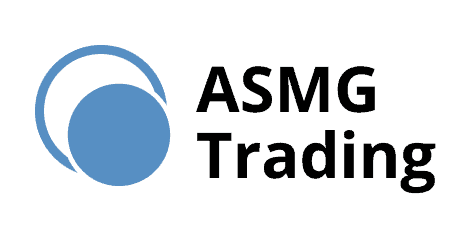Oil and Gas Industry
The oil and gas industry requires materials that can withstand harsh environments and corrosive substances, making high-performing alloys like stainless steel and nickel alloys essential for various applications in the industry. Achieving the highest levels of material performance, durability, and resistance to corrosion is essential. At ASMG, we provides solutions that can help to enhance the performance of high-performing alloys used in the oil and gas industry. Below are range of products that can meet your specific needs in the oil and gas industry.
- Duplex Stainless Steels: Duplex stainless steels are a family of stainless steels that are widely used in the oil and gas industry due to their excellent strength, toughness, and resistance to corrosion. They offer a combination of ferritic and austenitic microstructures and are best suited for applications that require high strength and corrosion resistance. ASMG can enhance the performance of duplex stainless steels by modifying their surface to provide better resistance to wear, abrasion, and corrosion. The most common grades used in the oil and gas industry are:
- Duplex 2205: This grade offers high strength and excellent resistance to corrosion in a wide range of environments, including seawater and sour gas. It is commonly used in oil and gas production equipment and pipelines.
- Super Duplex 2507: This grade offers even higher strength and improved resistance to corrosion in harsh environments, such as seawater and acidic environments. It is commonly used in offshore platforms and subsea equipment.
- Austenitic Stainless Steels: Austenitic stainless steels are another family of stainless steels used in the oil and gas industry. They are highly resistant to corrosion and high-temperature applications and offer excellent mechanical properties. The most popular grades used in the oil and gas industry are:
- 304 stainless steel: This grade is the most commonly used austenitic stainless steel in the industry. It offers excellent resistance to corrosion and can withstand temperatures up to 870°C and is used in storage tanks and piping systems due to its low carbon content and excellent weldability.
- 316 stainless steel: This grade offers improved resistance to corrosion and high-temperature applications compared to 304 stainless steel. It can withstand temperatures up to 870°C and is often used in pipelines, fittings, and valves due to its excellent resistance to corrosion and its ability to withstand high temperatures and pressures.
- Nickel Alloys: Nickel alloys are used in the oil and gas industry due to their excellent resistance to corrosion and heat. They offer high strength and toughness and can withstand high temperatures and harsh environments. ASMG can enhance the performance of nickel alloys by improving their surface properties and providing better resistance to wear, abrasion, and corrosion. The most common grades used in oil and gas industry are:
- Inconel 625: This nickel-chromium-molybdenum alloy offers excellent resistance to corrosion and can withstand temperatures up to 1000°C. It is often used in oil and gas production and processing equipment, such as valves, tubing, and heat exchangers, as well as in offshore platforms and subsea components.
- Incoloy 825: This nickel-iron-chromium alloy offers excellent resistance to corrosion and can withstand temperatures up to 540°C. It offers excellent resistance to a variety of corrosive environments, including sulfuric acid, phosphoric acid, and sour gas. It also has good resistance to stress-corrosion cracking and pitting corrosion, making it an ideal material for use in downhole tubulars, gas gathering lines, heat exchangers, and other processing equipment. It is also used in seawater cooling systems and in desalination plants due to its resistance to corrosion in seawater.
- Hastelloy C276: This nickel-molybdenum-chromium alloy offers excellent resistance to corrosion and can withstand temperatures up to 1100°C. It offers offers exceptional resistance to corrosion in a wide range of environments, including acidic, alkaline, and chlorine-containing environments. It is often used in chemical processing equipment, such as reactors and distillation columns, as well as in oil and gas production and processing equipment, such as valves and tubing.
- Monel 400: This nickel-copper alloy contains small amounts of iron, manganese, and silicon and offers excellent resistance to a wide range of corrosive environments, including seawater, sulfuric acid, and hydrofluoric acid. It is commonly used in seawater cooling systems, heat exchangers, and downhole tools. It is also used in oil and gas production and transportation equipment, such as valves, piping, and fittings, due to its excellent resistance to corrosion in chloride-containing environments.
- Titanium Alloys: Titanium alloys are used in the oil and gas industry due to their excellent strength-to-weight ratio and resistance to corrosion. They offer high strength, toughness, and can withstand high-temperature and harsh environments. ASMG can enhance the performance of titanium alloys by improving their
-
- Titanium Grade 2 is a commercially pure titanium alloy that offers excellent corrosion resistance and is often used in oil and gas production and processing equipment, such as heat exchangers, pressure vessels, and pumps. It is also commonly used in offshore platforms, subsea components, and marine applications due to its resistance to seawater corrosion.
- Titanium Grade 5, also known as Ti-6Al-4V, is a titanium alloy that contains aluminum and vanadium. It offers higher strength and greater corrosion resistance than Grade 2, making it ideal for use in applications that require high strength and corrosion resistance, such as downhole tools, wellhead components, and other high-stress applications.
ASMG can provide the above alloys in various forms, including pipes, tubes, fittings, flanges, and other components, all of which meet industry standards and regulatory requirements. Our technical experts can also provide support and assistance to you in selecting the best material for their specific application and ensuring that their equipment is designed and fabricated to meet the required standards. Contact us today for inquiries or to learn more about our services.
